MercoPress. South Atlantic News Agency
Tag: Brazil
-
Friday, April 6th 2018 - 07:47 UTC
Lula expected to continue campaigning from jail as the Workers Party readies a Plan B and option candidate
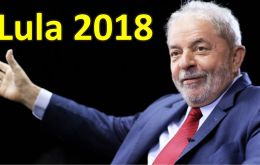
Even when Brazilian ex president Lula da Silva was described as facing Judge Sergio Moro's Friday jailing decision calmly, the big question now is what follows for the presidential candidate and the Workers Party chances ahead of the coming October presidential election.
-
Friday, April 6th 2018 - 07:28 UTC
Lula has until Friday afternoon to start a prison sentence for corruption
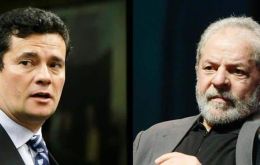
Former president Luiz Inacio Lula da Silva, front runner in Brazil’s October presidential elections, was given 24 hours on Thursday to surrender to police and start a 12-year prison sentence for corruption. The timing of the order from Judge Sergio Moro, head of Brazil’s huge “Car Wash” anti-graft probe, took Lula’s lawyers by complete surprise. They had been expecting to use legal maneuvers to delay the start of prison at least until next week.
-
Thursday, April 5th 2018 - 09:16 UTC
Supreme Court rejects Lula's petition: must start prison term
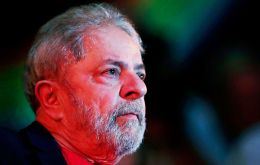
The Supreme Federal Court of Brazil (STF) decided to reject the judicial appeal filed by former President Luiz Inácio Lula da Silva to appeal while in freedom to a sentence for corruption that remains pending, so the former president should enter the prison and begin compliance of the sentence.
-
Wednesday, April 4th 2018 - 09:24 UTC
Brazil's conundrum: Army chief twits “good citizens repudiate impunity and respect the Constitution”
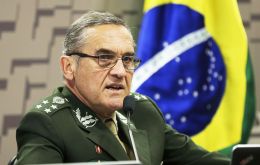
The commander of Brazil's army added tension on the eve of a Supreme Court decision on whether former President Lula da Silva should be allowed to exhaust his appeals process before being sent to jail for a corruption conviction.
-
Wednesday, April 4th 2018 - 08:42 UTC
Brazil extends oil and gas surveying in southern Campos and Santos Basins
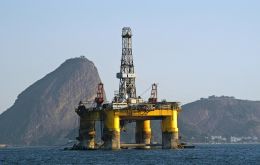
Geoscience data for oil and gas exploration and production company, TGS said it has obtained the Brazil Southern Basins SeaSeep project in the Campos and Santos Basins, offshore Brazil.
-
Wednesday, April 4th 2018 - 08:21 UTC
Supreme Tribunal vote on Lula's political future will divide Brazil: calls for calm to avoid social disorder
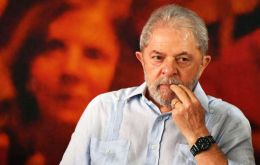
Brazil's top court could rule as soon as this Wednesday whether former President Lula da Silva can stay out of prison while appealing a corruption conviction, a decision that could radically alter October's presidential election in Latin America's largest nation.
-
Tuesday, April 3rd 2018 - 09:20 UTC
Cunha, the driving force of Rousseff's impeachment sentenced to 15 years
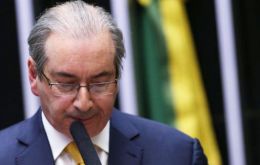
Brazilian court has sentenced the former speaker of the country’s lower house, Eduardo Cunha to more than 15 years in prison for corruption. The ex Worker’s Party member is the highest profile political conviction yet in the ‘operation car wash’ scandal.
-
Tuesday, April 3rd 2018 - 09:06 UTC
Temer reshuffles cabinet ahead of 7 October general elections
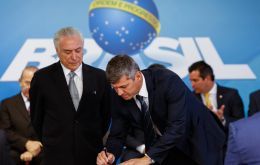
More than one-third of the ministers in Temer’s cabinet are expected to resign this week to campaign in the 7 October general elections. The most outstanding figure of the lot is Finance minister Henrique Meirelles who is tipped to become the ruling PMDB presidential candidate, following his success in putting the Brazilian economy back on a growth track.
-
Tuesday, April 3rd 2018 - 08:48 UTC
Brazil subsidized loans for the 2018/19 agriculture program will reach US$ 58bn
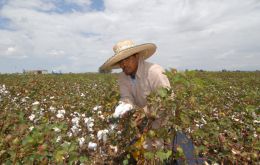
Brazil's Agriculture Ministry plans to increase funds available to finance the farm sector, an official announced, noting that a decline in inflation has allowed the government to boost funding in a country that is the world’s largest exporter of staples like soybeans and coffee.
-
Tuesday, April 3rd 2018 - 08:43 UTC
Brazil's unemployment stubbornly remains above 12%
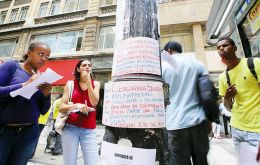
Despite official announcements that Brazil's recession was turning into a mild recovery, the unemployment rate rose to 12.6% in the quarter ended in February, reaching the highest level since mid-2017 and surpassing market expectations of a 12.5% rate, according to the national statistics office.
